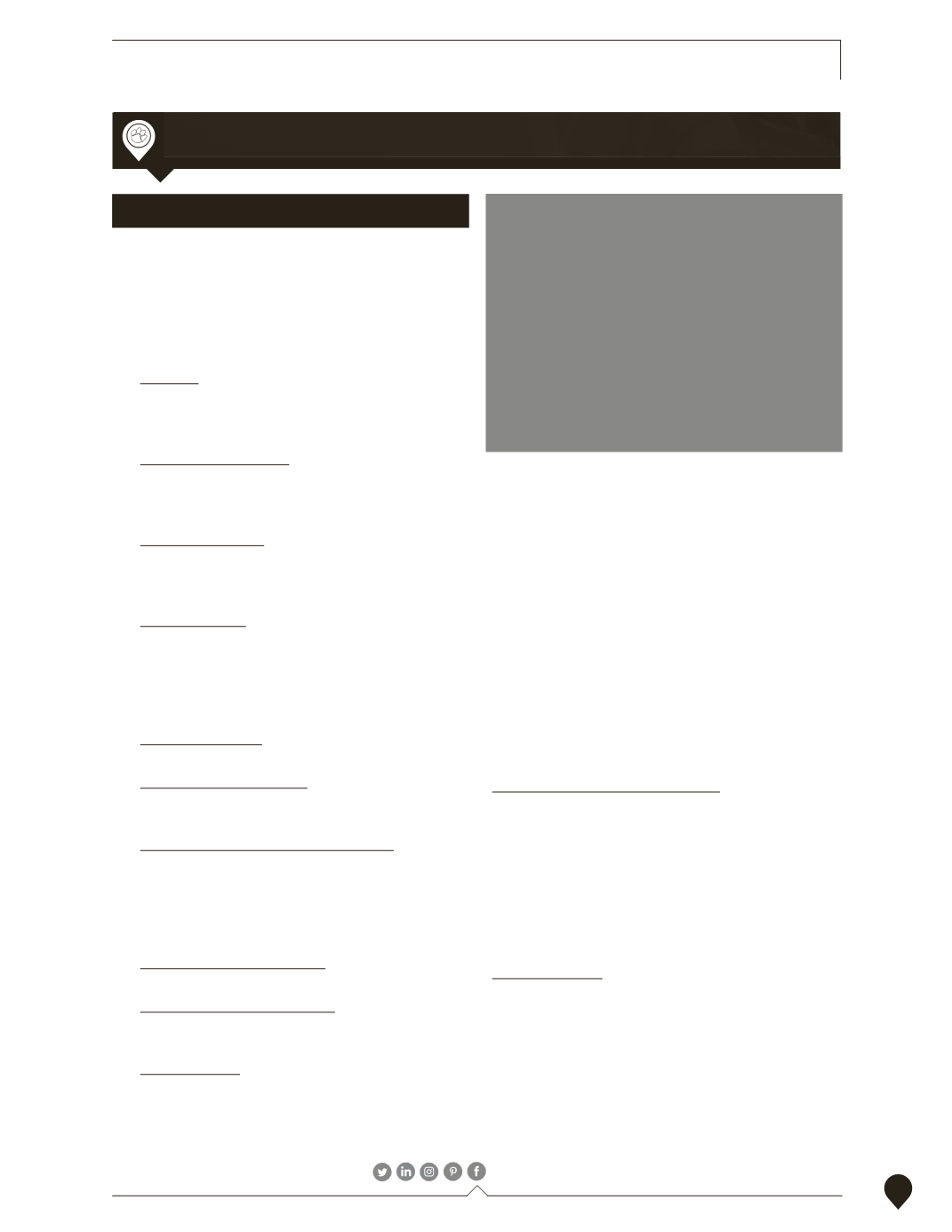
 clemson.edu/career
clemson.edu/career
CENTER FOR CAREER AND PROFESSIONAL DEVELOPMENT
/ClemsonCCPD
51
PREPARE FOR INTERVIEWING
BEFORE THE INTERVIEW
RESEARCH EMPLOYERS
The number one complaint from employers are candidates who
are not prepared for the interview. Researching the employer
will help you decide if you are truly interested in working for
the employer, discover the career paths available, and, most
importantly, prepare for the interview. Here is what you should
look for:
•
The basics: Products and services, organizational
structure, operating divisions, location of facilities, major
competitors, typical career paths and available training
and development programs.
•
Performance and personnel: Size and number of employees,
accomplishments, sales, financial performance, research
and development activities, employee diversity, hiring and
promotion policies.
•
Philosophy and culture: Corporate goals and objectives, the
traditional values, beliefs, views and operating styles that
characterize the organization, and the potential impact of
private ownership toward advancement.
•
Plans for the future: Expansion and restructuring plans,
new projects, projected financial growth and new market
ventures.
RESOURCES AVAILABLE TO HELP PREPARE YOU
FOR THE INTERVIEW
•
Employer’s Home Page: If the employer has one (most do),
they expect you to have viewed their information.
•
Employer Information Sessions: Attending an information
session prior to an on-campus interview is a must.
Employers notice those who do and DO NOT attend.
•
Career Resource Center and Career Counselors: Many
print and electronic resources are available for employer
research in the career library. Career Counselors are
available for interview counseling and mock interviews.
ClemsonJobLink offers a virtual mock interviewing system
where you can practice answering interview questions.
•
Newspapers and Broadcast Media: Look up news stories
regarding employers.
•
Chamber of Commerce Publications: Local, state, national
and international Chambers of Commerce are excellent
resources for employer information.
•
College professors: Your professors are often excellent
resources for information about employers.
Key Principles for Success in Interviewing:
1. Plan for travel:
a. If possible, drive to the building the day before
b. Clarify who is responsible for travel costs
2. Make a positive first impression
3. Review your qualifications
4. Practice your communication skills
5. Answer questions effectively
6. Ask questions that show interest
7. Follow-up after the interview
TYPES OF INTERVIEWS
An interview is a situation where you “sell yourself.” This
applies to all interviews, not just for jobs. For example, you
may have been “interviewed” by the parents of someone that
you are dating. Or perhaps you were quizzed by a committee of
professors at a comprehensive review of your major. This section
is about job interviews, but the principles in all interviews are
the same. Knowing how to interview is a handy skill to have.
There are several types of job interviews. For example, a
person from the personnel office may have a different goal in
mind when conducting the interview than the line supervisor.
Since people within the company may approach interviewing
differently, it pays to know how to handle each situation.
Typically, there are four types of interviews:
On-Campus Interview/Personnel Interview: Most campus
recruiters are trained interviewers. Their role is to evaluate your
overall potential and decide how well you would fit within the
company. They focus on both how you present yourself as well as
your technical expertise. They tend to ask questions about your
goals and attitudes. Your preparation, how you dress, how easily
you answer questions and your general motivation are areas
they evaluate. Since you can predict most of their questions,
prepare and practice your answers in advance.
Supervisor Interview: When talking to direct supervisors, the
interview questions are more technical. These people are
directly responsible for getting the work done and want to be
sure you can handle the job. They want to know “Can you do the
job?” and “Will this person fit into our team?” Therefore, expect
to talk about the nuts and bolts of the job and to show that you
are a team player.
















